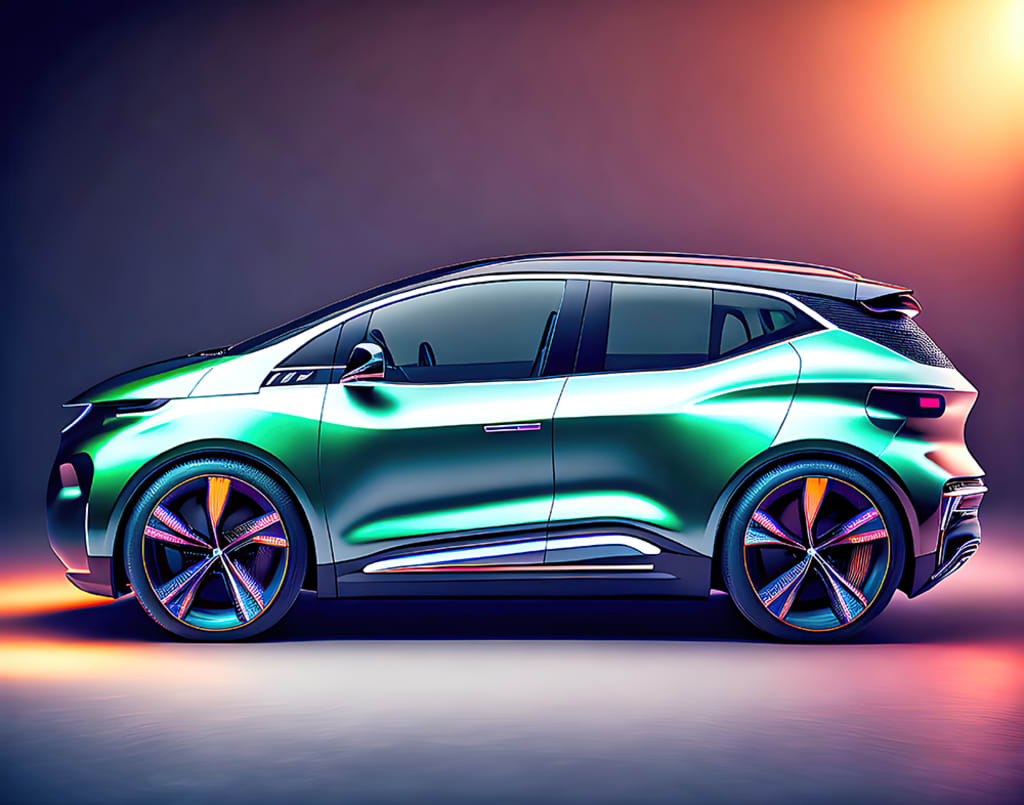
Electric vehicles (EVs) are vehicles that are powered by an electric motor and a rechargeable battery instead of a traditional internal combustion engine. EVs are becoming more popular due to their environmental benefits and the growing need for sustainable transportation options.
Pros
Electric vehicles produce zero emissions, which helps reduce air pollution and improve air quality.
EVs are more energy efficient than traditional gasoline-powered vehicles, which means they require less energy to operate.
EVs are often quieter and smoother to drive than traditional vehicles, providing a more comfortable ride.
Electric vehicles require less maintenance than traditional vehicles, which can save drivers money on repairs and maintenance costs.
EVs have lower fuel costs than gasoline-powered vehicles, as electricity is typically cheaper than gasoline.
Electric vehicles can be charged at home, or at public charging stations, making them convenient for drivers.
EVs are eligible for federal tax credits and other incentives, which can reduce the cost of purchasing an EV.
Electric vehicles are more environmentally friendly than traditional vehicles, as they reduce the amount of greenhouse gas emissions that are released into the atmosphere.
EVs are becoming more popular and accessible, which means that charging infrastructure is expanding and becoming more widely available.
Electric vehicles can be more cost-effective than traditional vehicles over the long term, as they require less maintenance and have lower fuel costs.
EVs are often more technologically advanced than traditional vehicles, featuring features like regenerative braking and advanced battery management systems.
EVs offer a smooth, quiet, and responsive driving experience that can be enjoyable for drivers.
Many electric vehicles are designed to be stylish and attractive, which can be appealing to consumers.
Electric vehicles often have lower operating costs than traditional vehicles, making them an economical choice for many drivers.
EVs can help reduce dependence on foreign oil, as domestically produced electricity can power them.
Electric vehicles can help to reduce traffic congestion, as they are often more efficient and require less space on the road than traditional vehicles.
EVs are becoming more affordable, as the cost of batteries and other components continues to decline.
Electric vehicles can help reduce noise pollution, as they are much quieter than traditional vehicles.
Many EVs have advanced safety features, such as collision avoidance systems and automatic emergency braking.
Electric vehicles are often more responsive and have better acceleration than traditional vehicles.
Electric vehicles can help to reduce the environmental impact of transportation, which is one of the largest sources of greenhouse gas emissions.
EVs can be charged using renewable energy sources like solar and wind power, which can further reduce their environmental impact.
EVs are becoming more reliable and durable, as battery technology and other components continue to improve.
Electric vehicles can be an exciting and innovative choice for drivers who are interested in cutting-edge technology and sustainable living.
Electric vehicles are a smart choice for consumers who want to save money, reduce their environmental impact, and enjoy a high-quality driving experience.
Cons
However, it’s worth noting that electric vehicles may not be suitable for everyone’s needs, and there may be certain situations where it may not be practical or feasible to own an electric vehicle. Some factors that may impact a person’s decision not to buy an electric vehicle include:
Range anxiety: Electric vehicles have a limited range on a single charge, which can cause drivers to worry about running out of battery power on longer trips.
Lack of charging infrastructure: While charging stations are becoming more common, there may not be enough of them in your area, making it difficult to recharge your electric vehicle.
Cost: Electric vehicles are often more expensive than their gasoline-powered counterparts, and this can be a barrier to many people.
Maintenance costs: Electric vehicles may require different maintenance than gasoline-powered vehicles, and these costs can add up.
Battery replacement costs: Electric vehicle batteries have a limited lifespan and may need to be replaced at a high cost.
Initial purchase price: Electric vehicles tend to have a higher initial purchase price than comparable gasoline-powered vehicles.
Resale value: Electric vehicles may not hold their value as well as gasoline-powered vehicles, which could lead to a loss when it’s time to sell.
Limited selection: While electric vehicle options are increasing, there may still be a limited selection of models to choose from.
Lack of performance: Some people may find that electric vehicles don’t offer the same level of performance as gasoline-powered vehicles, particularly in terms of acceleration and top speed.
Lack of variety in body styles: Currently, there are fewer electric vehicles available in a variety of body styles, such as SUVs, pickups, and sports cars.
Cold weather performance: Electric vehicle batteries can perform poorly in very cold weather, which may limit their usability in certain climates.
Hot weather performance: Electric vehicle batteries can also be negatively affected by very hot weather, which may limit their usability in certain climates.
Charging time: Charging an electric vehicle can take longer than filling up a gasoline-powered vehicle, which may not be convenient for some drivers.
Battery degradation: Over time, electric vehicle batteries can degrade, which can lead to a decrease in range and performance.
Environmental concerns: While electric vehicles produce fewer emissions than gasoline-powered vehicles, the production of their batteries can have negative environmental impacts.
Limited towing capacity: Electric vehicles may not tow as much weight as gasoline-powered vehicles.
Lack of charging access: People who don’t have access to charging stations at home or at work may find it difficult to keep their electric vehicle charged.
Electric grid limitations: If too many people switch to electric vehicles too quickly, there may be a strain on the electric grid, which could cause problems.
Distance limitations: Electric vehicles may not be suitable for people who frequently travel long distances, as charging stations may not be readily available.
Lack of noise: Some people may miss the sound of a gasoline-powered engine in their vehicle.
Limited off-road capability: Electric vehicles may not be suitable for off-road driving, as they may not have the same capabilities as gasoline-powered vehicles.
Lack of familiarity: Some people may be hesitant to switch to electric vehicles simply because they are unfamiliar with the technology.
Dependence on technology: Electric vehicles are more dependent on technology than gasoline-powered vehicles, which may make some people uncomfortable.
Safety concerns: Some people may worry about the safety of electric vehicles in the event of an accident.
Lack of availability: In some areas, electric vehicles may not be readily available for purchase or lease, which could limit their adoption.
While there are many reasons to consider buying an electric vehicle, these factors may make an EV a less appealing choice for some consumers. It’s important to carefully consider your own needs, preferences, and budget when deciding whether an EV is the right choice for you or not.
About the Creator
Manik Roy
Writer | Photographer | Handwriting Expert | AI Artist






Comments (1)
Well done!!!